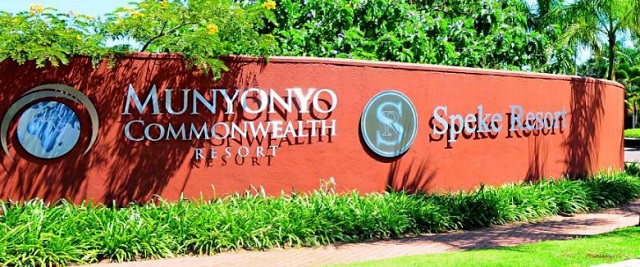
UTB says offers are good but the process must be transparent
Kampala, Uganda | JULIUS BUSINGE | Uganda’s tour operators are requesting government to offer them more tax incentives to boost investment in the sector even as trade experts say the move denies the economy of huge sums of money.
Operators told The Independent during a reporting on tourism training held at Bugala Island in Kalangala District from June 25-28 that incentives related to tax and land have potential to create more jobs and strengthen tourism, a sector that is reported as the country’s number one foreign exchange earner.
Last year, the tourism sector attracted 1.6million tourists, earning the economy $1.602bn. “The government should think more about giving the sector incentives and reviewing the already existing ones,” said Geoffrey Baluku, the director operations at Treck East Africa a leisure, travel and tourism company.
He said the initial cost of starting a business in Uganda is high and that tax holiday and land incentives would encourage new investments in the sector.
He said the existing tax incentives have benefited the hoteliers who have brought in equipment and related sector materials.
“My company has benefited from tax-free imports for tourism vehicles,” he said, adding that tour operators should be supported to attend international trade fairs and exhibitions to market the country.
Baluku also urged the tourism ministry and the Uganda Revenue Authority (URA) to use a working strategy to arrest individuals who purportedly dodge paying import tax for personal vehicles claiming that they are meant for tourism business.
“We have raised this issue several times as players and we hope it will be dealt with,” he said.
This comes at the time the tourism sector is already enjoying a cocktail of incentives including among others; duty and tax free import on plant and machinery; initial tax allowance on hotel, hospital and industrial building; stamp duty exemption on instruments for mobilising funds for tourism development and materials exclusively not available locally for construction of premises and required infrastructure.
Other incentives relate to hotel furnishings and fittings of high value and tax exemption on the supply of movie production for films shoot in Uganda. There are also land subsidies for investors in the sectors of information communication technology, minerals processing and agro-processing that are linked to tourism sector.
Herbert Byaruhanga, the vice president of Uganda Tourism Association urged tour operators working informally to register with Uganda Registration Services Bureau (URSB) and get known by the ministry of tourism and Uganda Tourism Board to be able to benefit from the sector incentives.
“Incentives are good but local investors should be given priority,” he said. Bradford Ochieng, the deputy managing director at Uganda Tourism Board said incentives are good but, added, the process of offering them must be transparent.
He said that they are working with the tourism ministry, URA, Civil Aviation Authority and other agencies to ensure that vehicles imported specifically for tourism activities are custom built, branded and engraved to prevent abuse of the incentive.
UTB is currently working with about 400 tour operators, according to Ochieng.
Jean Byamugisha, the executive director of the Uganda Hotel Owners Association – another key player in the tourism sector, said offering incentives to hoteliers would boost their operations.
She said 95% of hotels in Uganda are built using bank loans at an interest rate of 20% per annum, a cost that is passed onto the guests in form of high prices.
In addition, she said a hotel investment needs a consistent 40% occupancy rate per year to easily break-even – yet only a few hotels in Kampala record this rate. Those operating upcountry record 7%.
Stephen Asiimwe, a tourism, media, marketing and management consultant and former chief executive officer for UTB said incentives are good for tourism.
But he said the government should pick lessons from the incentives that it gave to investors in 2007 ahead of CHOGM meeting so as to make informed decisions.
“You saw the likes of Speke Resort Munyonyo coming up,” he said, “Many more of such hotels can easily come up and serve our visitors.”
He said the government could think of revising the terms of incentives given in the event that the beneficiary reports consistent growth in profits.
However, a section of civil society organizations have argued that extending tax incentives to attract investments is costing the economy millions of shillings that would have otherwise been used to fund the national budget.
A recent study conducted by the Southern and Eastern Africa Trade Information and Negotiations Institute (SEATINI) shows that Uganda lost Shs1.4trillion in tax incentives in the year 2017/2018 alone.
Experts say that designing incentive policies requires government to link the tourism sector to other economic indicators for it to be able to achieve positive results.
For instance, a World Bank survey for Uganda conducted in 2013 says that, attracting 100, 000 additional leisure tourists into the country would add 11% to exports and 1.6% to GDP.
It adds that persuading a tourist to spend one additional night in Uganda would add 7% to exports and 1% GDP, and that an 8% annual growth in leisure and conference tourists would generate an additional $220 million in receipts per year.
Key facts about tourism (Source UTB)
- It employs 700, 000 people
- Number of hotels is 3, 400
- Number of hotel rooms is 250, 000
- Number of hotel beds is 300, 000
- Number of national parks is 10
****
 The Independent Uganda: You get the Truth we Pay the Price
The Independent Uganda: You get the Truth we Pay the Price




400 tour operators in Uganda? How do we define a tour operator? Sure you can recommend financial incentives but most of the 400 would not know how to use the funding. We need real training programs and real understanding of what international tourists are looking for. This is what we suggested to “consultant” Stephen Assimwe when he has CEO of UTB and he never ever did anything.
Amos Wekesa needs to conduct the training and show us his secrets. Amos. Amos.